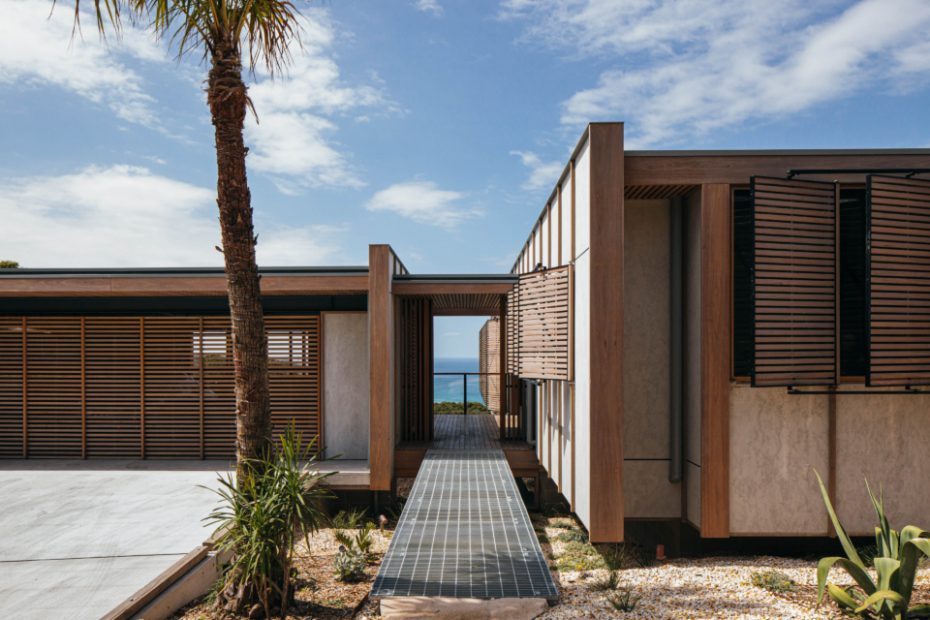Inside A Container-Style Beach House Perched Over Coastal Bushland
Architecture
The house was made using only Australian blackbutt timber. Steel is painted in Murobond ‘Bridge Paint’ by Carbon.
The pool looks over the coastal bushland.
Incredible ocean views.
High-level louvres allow for ventilation in summer.
A seamless transition between indoors and outdoors.
The home receives an abundance of natural light.
The perfect spot for watching the sun rise over the ocean in the morning!
Lighting by Tovo Lighting.
Plenty of space for entertaining.
Step out and enjoy the views.
Imagine waking up to this view!
The clients’ brief was to create a container-style building that would hover over the natural landscape to maximise engagement with the ocean views.
Japanese design influences meet rugged coastal surroundings at this impressive family house in the seaside suburb of Dudley.
When the clients — a family of four — employed Incidental Architecture to design their dream home, the brief was to create an industrial container-style building that would hover over the natural landscape to maximise engagement with the ocean views.
Dubbed Surf Check House as a nod to the owner’s passion for surfing, it was almost fate that the family would end up at this very location.
‘He is a keen surfer and had always visited this site to check the local surf conditions before heading down to the beach,’ Incidental architect Matt Elkan says.
Over the course of three and a half years, the vacant site was transformed into the striking structure seen today — complete with an open-plan layout that seamlessly connects the main living areas with the outdoors. Standing on the covered deck overlooking the water and bushland, it feels as though the ocean is right at your fingertips!
While all of the timber used is Australian hardwood, Matt says that the design was heavily influenced by Japanese timber detailing. Other design inspirations included the St Andrews Beach House by Fender Katsalidis, and the House on the Coast by Sean Godsell — both projects located on Melbourne’s Mornington Peninsula featuring cubic frames and exposed timber, including timber louvres which allow for ventilation in summer.
Passive cooling is also achieved in the home thanks to cross ventilation in all rooms from multiple directions, creating a lovely ocean breeze in the warmer months. In winter, three raised pop-up roofs allow natural light to flood throughout the home.
Matt explains how the design required a ‘simple form with complex openings’ for it to be tuned to the varying weather conditions. The coastal environment also meant it was integral to consider corrosion resistance with every element of the building.
‘The result is a house that feels enriching, but not extravagant,’ he adds.
‘We love the fact that the house creates an internal world for its occupants. On the outside it is quiet, calm and minimal. Internally it is rich and warm.’
With busy lives between Newcastle and Sydney, the owners now have a calm space to retreat to and enjoy a certain separation from the outside world while connecting with nature. The thoughtful design of the home allows for the possibility of waking to a sunrise on the water from the eastern deck, or finding reprieve in the cooler, more private parts of the house as the day progresses.
‘There is a nice dialogue between prospect and refuge,’ Matt says.
